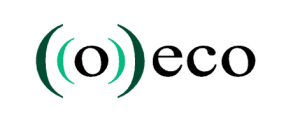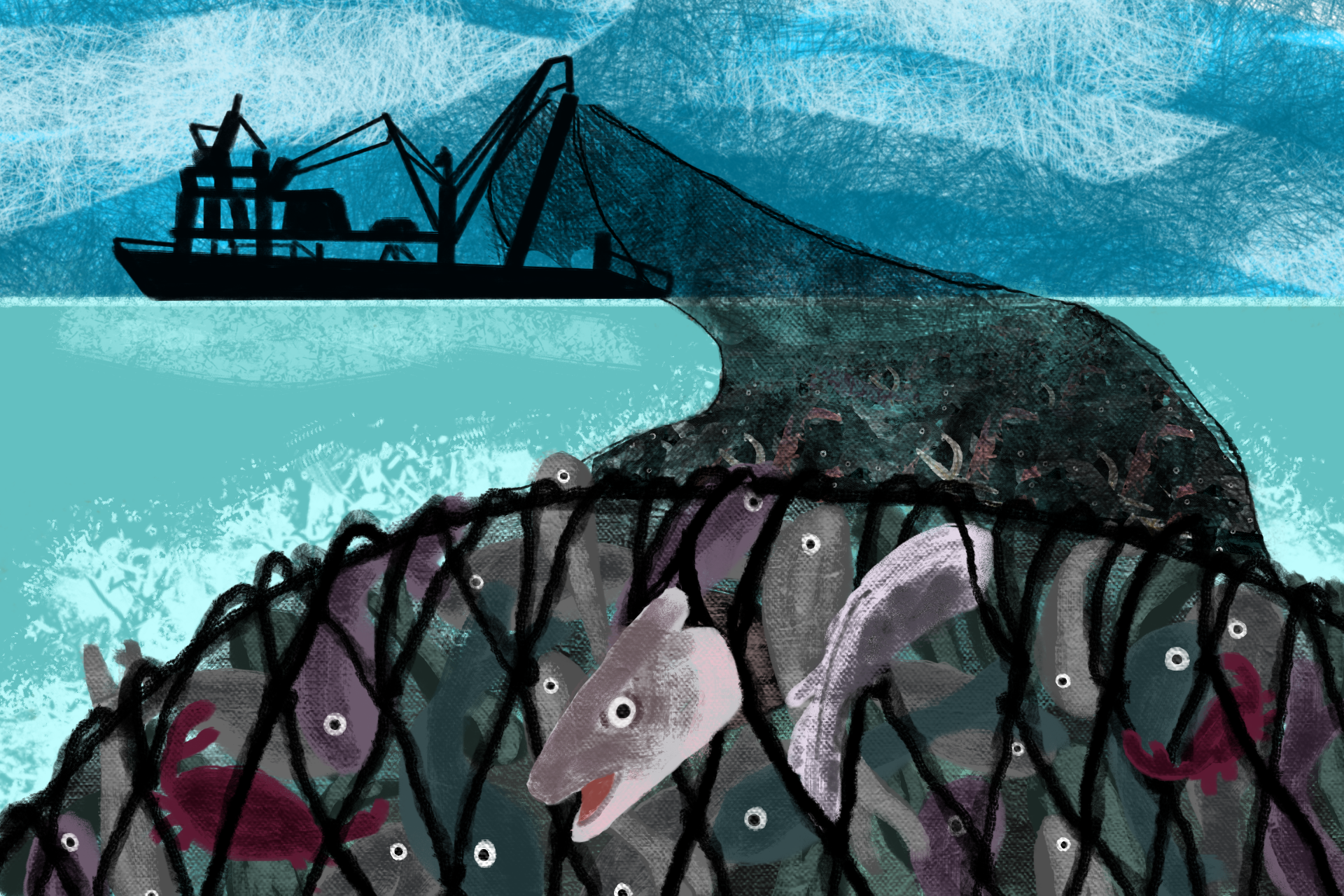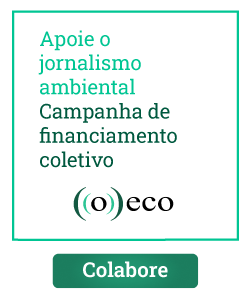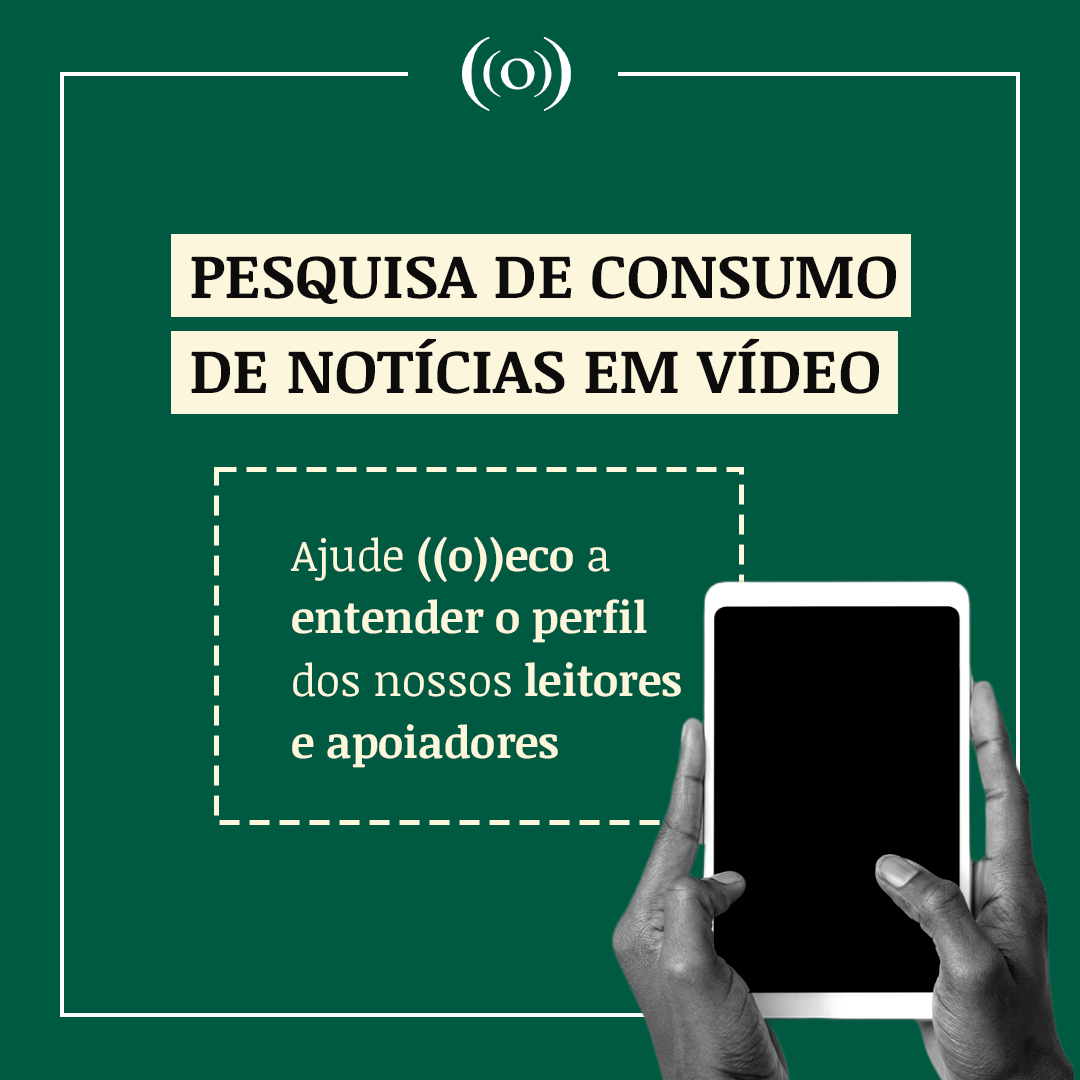Fishing trawlers threaten marine life with extinction along Brazil’s coast. Researchers point out that regulating the practice brings ecological and economic benefits. Many countries already limit the activity in order to defend their natural resources, but trawling still persists in Brazil and risks causing further damage and even environmental crimes.
The global conservation of marine life requires a moratorium on the mass killing caused by trawling. It accounts for half of the world’s bycatch, but contributes to less than 20% of fish production. Some trawlers throw away 14 kilos of fish for every kilo unloaded from the boats, experts say. But the situation could be even worse.
Marcelo Vianna, head of the Marine Biology Department at the Federal University of Rio de Janeiro, recalls cases in estuaries and lagoons in contact with the sea where up to 50 kilos of animals are lost for every kilo of fish.
“The targets of trawling change over time according to the availability of resources and marine currents. Many small fish with no commercial value are caught due to the wide variety of species in tropical countries. Countless animals are drowned on deck or crushed in the nets. Few species survive until they return to the sea,” he explained.
A 2018 study published in the journal Fisheries Research concluded that trawling has returned globally 437 million tons of fish to the sea over the past 65 years. This would come out to $560 billion in resources being thrown away, the authors estimated.
In Brazil, more than 400,000 tons of marine life were discarded between 2000 and 2018 in the states of Santa Catarina, Rio Grande do Sul, Rio de Janeiro, and São Paulo alone, according to the NGO Oceana. The reduction in trawling catches has diminished since the 1980s, pushing the fleet farther out to sea in search of shoals.
The slaughter bycatch represents is especially worrisome for those who most depend on the resources for survival. Almost 113,000 families live in 44 extractive reserves, a type of Brazilian environmental protection area, and other traditional territories along the 9,200 kilometers of the country’s coast. Fishing, beach trawling, shellfish and crab harvesting are the reserves’ predominant livelihoods.
“Trawling has made lobster, sardines and corvina scarce in the Northeast and other regions. Fish, turtles and porpoises killed by nets fill the beaches. But the businessmen don’t see that this is bad for themselves and don’t want restrictions. Soon there will be no fishing for anyone,” warned Maria Aparecida Ferreira, from the National Commission for the Strengthening of Extractive Reserves and Coastal Marine Extractive People.
Controlling trawlers can even benefit protected areas threatened by overfishing, pollution, and other human pressures. Such impacts have reduced marine life on the edge by up to 60 percent relative to the core of these protected areas in various parts of the globe, according to a study published in July in the journal Nature.
But nets threaten other features, too, warns Beatrice Padovani, PhD, a professor at the Federal University of Pernambuco. “Trawling always impacts the seafloor. Soft bottoms of sand or mud recover faster, while hard bottoms, made up of sponges and corals, can take decades or even hundreds of years [to recover], or never recover.”
The damage emits as much carbon dioxide as all the world’s commercial flights, a study published in March’s issue of Nature relates. Marine sediments are major deposits of the gas, which amplifies the greenhouse effect by increasing the average planetary temperature. China, Russia, Italy, the United Kingdom, Denmark, France, the Netherlands, Norway, Croatia and Spain account for most of the CO2 released by bottom trawling.




Fine-toothed comb
There are about 5,225 trawler boats registered in Brazil. Seven out of ten (around 3,700) operate in the South and Southeast regions. Trawler traffic is also intense on the Amazonian coast. Fishing is concentrated nationwide at shallower depths, an official satellite tracking system shows. These areas are inhabited by hatchlings of many species.
Yet, data obtained via the Access to Information Act indicates that only 2,400 (9.4%) of the 25,618 fishing boats registered by the government are monitored by satellites. Since 2014, the government has granted R$13.8 million in subsidies to buy fuel for these fishing boats.
Only 632 larger boats are monitored electronically, or 12% of the trawlers. What the rest does is unknown. The Brazilian program that tracks fishing boats by satellites isn’t publicly open and isn’t integrated with worldwide monitoring initiatives, such as Global Fishing Watch.
Blindness facilitates illegal fishing. A 2019 report by federal environmental enforcement highlights 1,039 infractions linked to fishing with longlines, gillnets, lines, pots, seines and trawls. The survey doesn’t discern individual trawler crimes.
IBAMA, a Brazilian environmental enforcement agency, claimed not to have the capacity to locate trawling offenses over the last decade from its records in a timely manner, as requested by the report. It also claimed, via the Access to Information Law, that releasing the data would compromise the fight against crime.
The disclosure and analysis of this data could reveal location and period of inspection actions, which can in turn frustrate inspection actions via the early withdrawal of evidence from locations on the verge of being inspected, thus facilitating the planning of reprisals and ambushes against inspection agents.
Government officials are also involved in alleged illegalities: Jair Bolsonaro was fined in 2012 for fishing in a protected area in Rio de Janeiro. Early on as President of the Republic, he forced the dismissal of the civil servant who fined him. In 2019, and in the same state, a company owned by the family of the Aquaculture and Fisheries Secretary, Jorge Seif Júnior, was fined for illegal fishing as well.
Meanwhile, the federal government adopted a United Nations program to reduce the impacts of shrimp trawling, just as Colombia, Costa Rica, Mexico, Suriname, and Trinidad and Tobago have done. The initiative is intended to improve legislation and control, reduce the massive capture of species along with fishing targets, improve working conditions, and expand the public dissemination of information.
“The government wants to use [the program] without scientific results on the effective reduction of bycatch in the country. The government treats a project as public policy that, in reality, is only on paper. The trawlers have no intention to regularize their situation, and there is a lack of political will to reform this industry once and for all,” complained Luís Gustavo Cardoso, Professor of Oceanography at the Federal University of Rio Grande (FURG, in Portuguese).





Advantages of control
Brazilian experts have shown that limiting trawling on the coast of Rio Grande do Sul would increase shipowners’ and industries’ revenues by R$ 34.1 million ($6.54 million USD). The state tax collection from the fishing sector would increase by R$3.5 million, from R$ 600,000 to R$ 4.1 million per year, an increase of almost 600%.
Since 2018, the calculations of FURG scientists were intended to block trawlers over a 22-kilometer stretch of coastline. But the moratorium was relaxed by an injunction from the Supreme Court in 2020. Now, the practice remains suspended until the government implements measures to reduce impacts.
See more in Brazil a wreck on trawling control
“Trawling of fish nurseries near the coast causes great damage. Particularly affected are slow-breeding species, like sharks and rays, caught indiscriminately by the nets. The regulation of the practice had triggered the repopulation of marine life, including those of commercial interest,” said Manuel Haimovici, an emeritus professor in Oceanography at FURG.
The improvement was felt by fishermen. Coordinator of the Lagoa dos Patos Forum — a large body of fresh water connected to the sea in the south of the country — Nilmar Conceição says that the 3,000 fishermen linked to the entity approved the interruption of trawling. About eight out of every ten kilos of their catches are sold to the states of Santa Catarina and São Paulo.
“The great majority of fishes survive. Until the blockade, we spent five years almost without shrimp and with only a few mullets and croakers. The supply of fish increased a lot with the ban. Trawling is our headache. It hinders the entry and movement of larvae and fry into the lagoon. Resuming trawling will be a step backwards.”

At the global level, 19 countries, regions and territories ban or restrict trawling (including two in South America) — Palau, Indonesia, Sri Lanka, Sierra Leone, Belize, Japan, Mauritius, Saudi Arabia, the Azores, Canary Islands, and Madeira, Chile, New Zealand, Hong Kong, the Philippines, Peru, the European Union, the United States, and Canada. The rules seek to protect 34 million km² of sea, equivalent to twice the area of Russia.
The measures strengthen actions against the theft of fish and other animals from each country by foreign fleets. The crime is more common in colder waters and those richer in larger fish. South American countries are recurrent victims of boats flying the flags of Asian and European nations in their territorial waters.
“China accounts for more than 70% of the foreign presence in international waters, followed by South Korea, Taiwan, and Spain. This is the main problem for conservation on the high seas, affecting local production and international prices. The conflict is permanent,” said Eduardo Pucci, Director of the Organization for the Protection of Fishery Resources in the South Atlantic.
Through the Access to Information Act, the Brazilian Navy reported that four foreign vessels have been caught in national waters since 2012. Two had Japanese flags and the others had Venezuelan flags. One of the boats was seized earlier this year in the state of Amapá, off the Amazonian coast, with 15 Venezuelan nationals and 3 tons of illicit fish onboard.
The Secretariat of Aquaculture and Fisheries did not respond to repeated requests for an interview.
This story was produced by ((o))eco with the support of the Wilson Center and Internews’ Earth Journalism Network and was originally published on 18 August, 2021. It has been translated to English by ((o))eco, revised by Duda Menegassi and Sam Schramski, and lightly edited for length and clarity.
Leia também

Desperdício do arrasto aumenta chances de extinção da vida marinha
Até 50 quilos de pescado são jogados fora para cada quilo desembarcado no país. A interrupção dos arrastões beneficia a ecologia e as economias. Países vetam a pescaria para proteger seus recursos →

Desmatamento no Cerrado cai no 1º semestre, mas ainda não é possível afirmar tendência
Queda foi de 29% em comparação com mesmo período do ano passado. Somente resultados de junho a outubro, no entanto, indicarão redução de fato, diz IPAM →

Unesco reconhece Parna dos Lençóis Maranhenses como Patrimônio da Humanidade
Beleza cênica e fato de os Lençóis Maranhenses serem um fenômeno natural único no mundo levaram organização a conceder o título →








